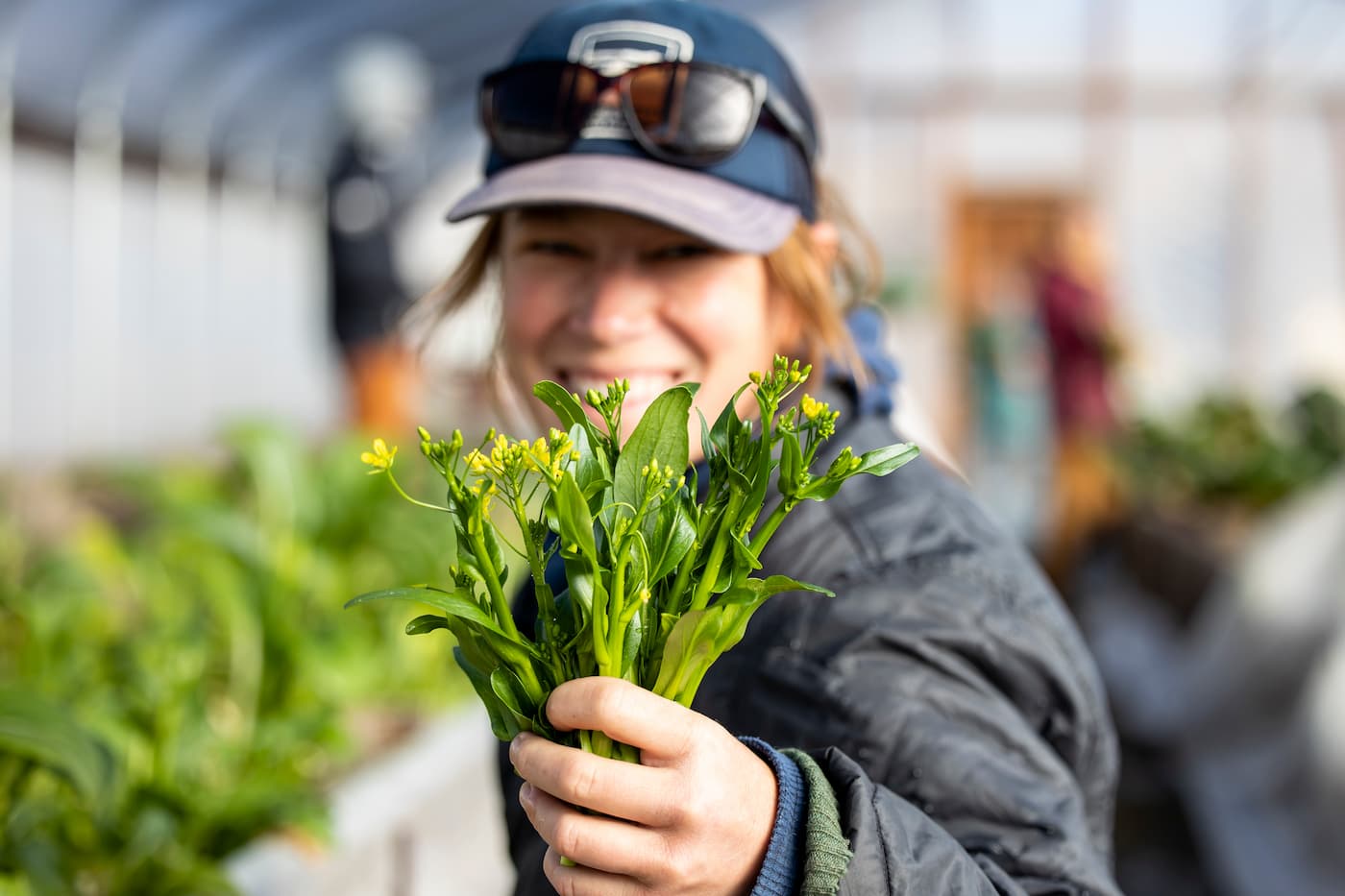
- High Country Conservation
- February 20, 2024
- Ask Eartha
Dear Eartha, every year about this time I start thinking about my summer vegetable garden. I get excited, spend too much money on seeds, and then get overwhelmed before the gardening season has really begun! What advice do you have for me?
While I embrace the snow all winter, there’s nothing wrong with a little summer daydreaming. And for avid gardeners, summer daydreaming starts now. To prevent burning yourself out before the soil is even workable, start with a gut check.
Consider your spring and summer travel schedule, how much space you have (indoors and out), and what kind of time commitment you want to make. Maybe it’s the year to try seeding and transplanting summer squash, or maybe it’s the summer of easy-to-grow salad greens. Whatever you decide, a little planning goes a long way.
Know What Grows (at Altitude)
Those new to high country gardening may be surprised to learn just how short our summers are. The cool nights that give us relief from the summer sun also tank our chances of successfully growing things like tomatoes, peppers and cucumbers. In fact, research by Colorado State University (CSU) Extension shows that Dillon has just 25 frost-free days in an average year!
Colorful online pictures of beautiful veggies can tempt us into buying all sorts of seeds that have little or no chance of producing food at our altitude. Before you get swept off your feet by seed websites, school yourself on the easy veggies that thrive in our climate.
One quick tip is to look at seed packets and website descriptions for cool-season vegetables. In warmer locations like Denver or Grand Junction, gardeners grow cool-season vegetables in the spring or fall. But here in Summit County, cool-season varieties work well in summer. To make your life even easier, High Country Conservation Center compiled videos, seed starting dates and other resources from local high altitude farming expert Kyla Laplante. As the mastermind behind the Summit CSA, she leads a team of farmers who grow fresh vegetables for more than 100 families each week throughout summer. Pretty amazing, right?
Grow for You, Grow to Share
One of my favorite gardeners claims that she is a lazy gardener. She’s not actually lazy, she’s just referring to her preference for direct seeding, or putting seeds right into the soil of the outdoor garden. The alternative is seeding indoors and transplanting. Not only does seeding indoors require space with great light, it also requires lots of time and attention: to ensure the little seedlings don’t dry out, and to ensure they are slowly and deliberately acclimated to outdoor conditions.
For those of us who prefer quick rewards, direct seeding easy-to-grow cool-season vegetables is the way to go. You may be surprised at how quickly the arugula, radishes, bok choy and kale can add up. To prevent this garden abundance from going to waste, High Country Conservation Center offers Grow to Share, a program that gets fresh, organic produce into the hands of local families. Anyone can donate organic veggies from their garden. As you’re planning your summer veggie garden, consider growing some for you and some to share.
The Summit CSA
If you love fresh vegetables but just don’t have the time for growing, check out the Summit CSA. It stands for Community Supported Agriculture and it’s a model in which community members buy a “share” of the farm for the summer season. In return, the farmers grow high-quality produce that’s distributed each week for all shareholders.
It’s a hugely popular program and it sells out quickly. If you’d like to try and secure a spot for yourself, be on your computer or phone and ready to purchase on Monday, Feb. 19 – shares go on sale at 11 a.m. at HighCountryConservation.org. Community members can choose to pay in full ($525) or split the payment into two installments. The program also offers internships and volunteer opportunities in summer.
Even with snow still falling outside, it’s never too early to start planning your summer vegetable garden. Start with a gut check and no matter what you decide – grow for you, grow to share or leave the growing to the experts – eat your vegetables!
Ask Eartha Steward is written by the staff at the High Country Conservation Center, a nonprofit dedicated to waste reduction and resource conservation. Submit questions to Eartha at info@highcountryconservation.org.
